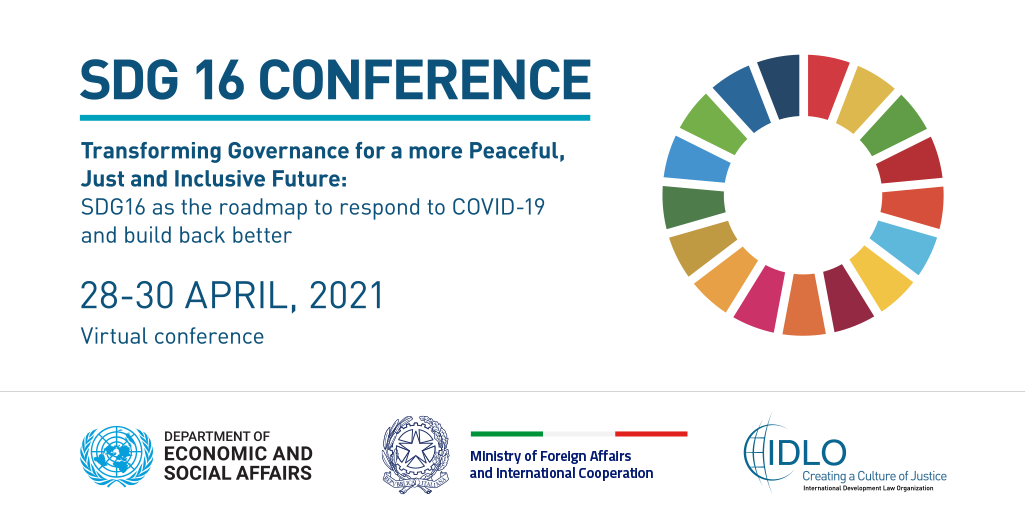|
Note: This blogpost is a reflection from GIFT’s participation in the SDG-16 Conference themed Transforming Governance for a More Peaceful, Just and Inclusive Future: SDG 16 as the roadmap to respond to COVID-19 and build back better. The conference was held from April 28-30, 2021.
|
|
|
Emergency fiscal responses pose significant transparency and accountability challenges, particularly in countries whose underlying legislation, processes and systems aren’t equipped to deal with emergencies. We have witnessed drastic budget re-allocations, and substantial additional spending, that will impact fiscal sustainability for many generations to come.
In many cases, spending has been done chaotically, behind closed doors, sometimes through the creation of extra-budgetary funds and outside of trusted procurement systems. Close to 50% of contracts in Mexico federal government were allocated directly in 2020, without open bidding processes… The amount is 90% in Chile for last year!
Movement restrictions have reduced the potential role of crucial oversight actors. The pandemic’s adverse effects on public health, education, labor and income, have meant that decades of gains for women and other minorities are being lost. These developments set the backdrop for an opacity perfect storm, paving the way for long-lasting corruption, increased inequality and poverty.
Many international development stakeholders have been working hard to help countries face such challenges, as this SDG 16 conference demonstrates. The GIFT network developed a guide on the transparency and accountability of COVID-19 fiscal responses, including a consolidated list of data needs.
We have also been following some country efforts, observing many encouraging responses[1]:
- To track spending not covered by information systems, countries such as Benin, Honduras and Rwanda have used innovative tracking mechanisms. Others, like Sierra Leone created dedicated funds with robust accounting and reporting standards.
- For transparency, Colombia, France, Honduras, and Peru, publish information on dedicated transparency portals. Emerging good practices include publishing a comprehensive overview of the COVID-19 response like in the Philippines; showing cross-sectional information such as in Brazil; and allowing open microdata access, such as in Paraguay and the United States. Others, like Jordan and Papua New Guinea, Ecuador, Kenya, Kyrgyz Republic, and Nicaragua also publish information on procurement contracts, including on beneficial ownership.
- On oversight, in Chile, Honduras, Peru, Sierra Leone, the USA and South Africa, supreme audit institutions undertake real-time (interim) audits trying to uncover irregularities as they happen.
- Regarding reaching out to vulnerable groups, amazing progress has been made with digital innovative tools. Togo launched “Novissi,” a social assistance program providing emergency cash assistance to the poorest families. The government quickly built and deployed a completely contactless, digital system that was able to provide cash to half a million individuals.
Few have, however, been able to simultaneously address the health emergency, economic downturn and social impact.
Now… Public engagement has made a significant difference in somewhat mitigating this. CSOs have been contributing and supporting emergency policies, fulfilling the roles of advocacy, contestation, investigative journalism, and bottom-up leadership, to name a few.
GIFT produced a scoping document on the role of CSOs in pandemic responses. CSOs and the media have aided oversight, facilitated data availability and complemented governments’ efforts.
In South Africa, volunteers disseminated procurement data on a “Keep the Receipts” platform. The Latin American Journalists Network, Red PALTA, published articles tracing overpricing and corruption in medical equipment procurement. In Chile, Fundación Observatorio Fiscal, analyzed controversial sanitation and hospital equipment procurement.
On monitoring, some Audit Institutions have used mobile-tech to provide information and have set up interactive features, so the public can share information and photos that support complaints about COVID19-related spending. In Georgia, the “budget monitor” portal allows citizens to request the Audit Office intervention in case of wrongdoing or abuse. In Peru, the General Comptroller has relied on voluntary participation for social control in the distribution of basic provisions aimed to the most vulnerable sectors, using also an online platform.
In other cases, including ACIJ in Argentina, INESC in Brazil and IBP in South Africa, Nigeria and Senegal, CSOs have been instrumental in broadening and improving policy options and implementation, raising inclusion and inequality considerations.
Let’s conclude with a few take-aways:
- Transparency: Open, systematic and monitored processes have improved policy implementation.
- Checks and balances & Civic participation: Stakeholder engagements have facilitated resource allocation and policy implementation; and
- Digital innovations and tools have been critical in facilitating all of this.
[1] See more at Fiscal Monitor, A Fair Shot, April 2021, International Monetary Fund, p.19.
|
|
|

